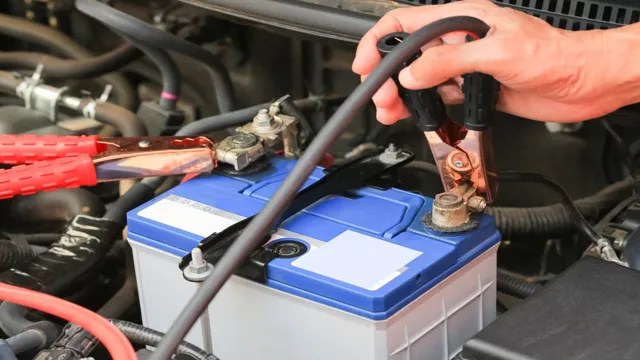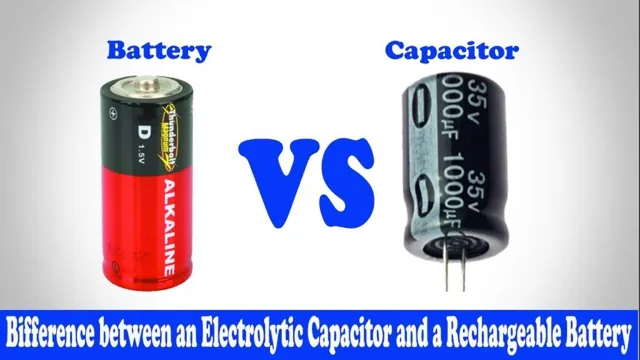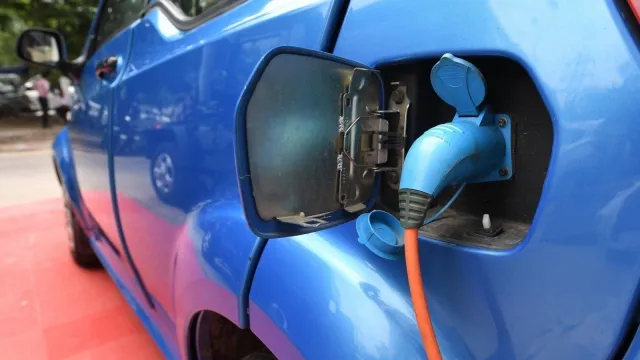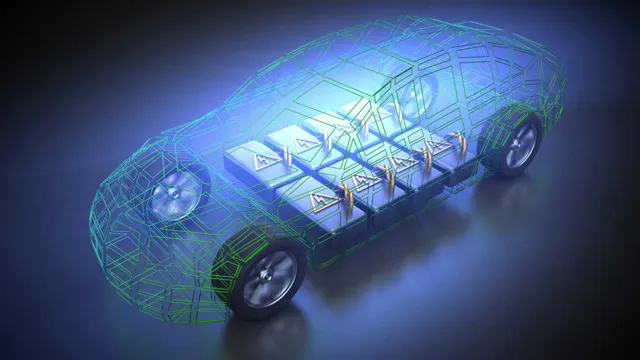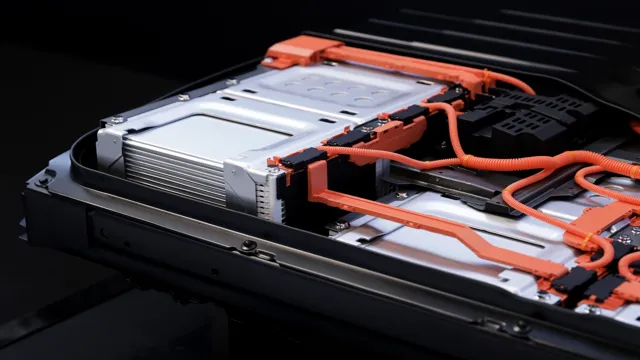Exploring the Myth: Do Electric Cars Lose Their Ability to Charge Over Time?
Electric cars have become increasingly popular in recent years thanks to their eco-friendly nature and fuel efficiency. One question that often plagues the minds of electric car owners is whether or not their batteries will degrade over time. After all, the battery is one of the most crucial components of an electric vehicle, providing the energy necessary to power the car.
In this blog post, we’ll take a closer look at whether or not electric car batteries really do degrade over time, and what factors might affect that degradation. So, buckle up and let’s dive in!
Understanding Battery Degradation
One question that frequently comes up about electric cars is whether their batteries lose the ability to charge over time. The answer is yes, all batteries experience a certain amount of degradation over time, but the rate and severity depend on a variety of factors. The chemistry of the battery, how often it’s charged and discharged, temperature fluctuations, and overall usage patterns can all play a role.
However, it’s important to note that the typical rate of battery degradation for electric cars is relatively slow. Most manufacturers warrant their batteries for at least 8 years or 100,000 miles, and many vehicles on the market today have proven to hold up well beyond that. Plus, even as batteries lose a bit of their capacity over time, it’s often not a major issue for most drivers since modern electric vehicles generally have enough range for day-to-day needs.
In short, while battery degradation is a factor to consider when purchasing an electric car, it’s not something that should necessarily deter you from making the switch.
Factors Affecting Battery Health
Battery degradation is an inevitable part of owning a device that runs on batteries. Factors such as temperature, usage patterns, and charging habits can all contribute to the gradual loss of capacity in your battery. When a battery degrades, it means that it can no longer hold as much charge as it once did, and it may also experience increased voltage sag and higher internal resistance.
High temperatures, such as leaving your device in a hot car or exposing it to direct sunlight, can accelerate battery degradation. Similarly, constantly draining your battery to zero or leaving it at 100% charge for extended periods can also decrease its overall lifespan. It’s important to note that while battery degradation is unavoidable, taking steps to carefully manage your device’s battery can help prolong its life and keep it running smoothly for longer.
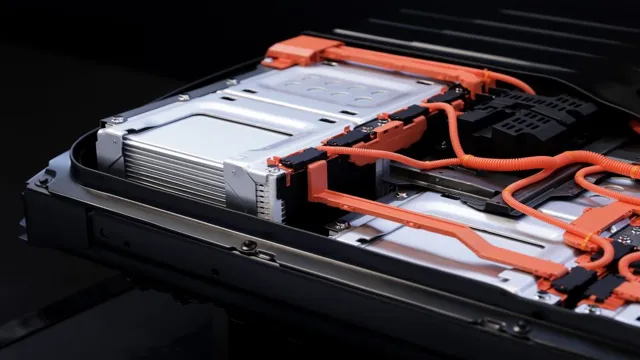
Typical Life Expectancy of EV Batteries
Electric vehicle (EV) battery life expectancy is a topic that many potential car buyers are concerned about. Batteries are the most expensive component of an EV, so understanding their typical lifespan is important. Battery degradation is the natural process of a battery losing its ability to hold and deliver a charge.
Several factors contribute to this, including temperature, charging frequency, and depth of discharge. Generally, a well-maintained EV battery can last anywhere from 100,000 to 200,000 miles, or roughly 8 to 10 years. However, this can vary depending on the make and model of the vehicle, as well as driving habits and environmental factors.
It’s important to note that battery degradation is not an all-or-nothing phenomenon, but rather a gradual decline in performance over time. As with any major purchase, it’s important to do your research and choose a vehicle with a battery that meets your needs and driving habits.
Maintaining Battery Health
One question that frequently arises when discussing electric vehicles is whether or not their batteries lose their ability to charge over time. The answer is yes, but the rate at which this happens depends on various factors such as the type of battery, the vehicle’s usage patterns, and how well the owner maintains the battery’s health. Lithium-ion batteries, which are commonly used in electric cars, can lose charging capacity over time due to chemical reactions within the battery that degrade its components.
However, owners can take steps to maintain their battery health such as keeping the battery within the optimal temperature range, avoiding charging to 100% or discharging to 0%, and ensuring the battery is not left unused for long periods. By following these guidelines, electric vehicle owners can help their battery maintain its optimal functioning capacity for a longer period.
Charge and Discharge Cycles
Maintaining Battery Health is crucial in maximizing the lifespan of your device’s battery. One of the essential aspects of battery health is Charge and Discharge Cycles. The battery’s capacity deteriorates over time, and the way you charge and discharge your device affects its lifespan.
Charging your battery for long periods, such as overnight charging, can cause the battery to heat up and shorten its lifespan. It is best to unplug your device once it reaches 100% charge. Similarly, discharging your battery completely can damage its capacity.
It’s best to keep your battery level between 20 and 80% to prolong its lifespan. Remember, the quality of the charger and cable you use also plays a significant role in battery health. Using third-party chargers and cables may cause damage to the battery.
So, it’s best to use the manufacturer’s original equipment when charging your device. By keeping track of your battery usage habits and maintaining a healthy charging pattern, you can ensure your battery lasts longer and remains functional.
Temperature Management
When it comes to the health and longevity of your device’s battery, temperature management is key. Extreme temperatures can cause irreparable damage to your battery and decrease its overall performance. This means that leaving your device in a hot car or exposing it to freezing temperatures can negatively impact its battery life.
To maintain optimal battery health, it’s recommended that you keep your device in a temperature controlled environment. If you must expose your device to extreme temperatures, try to limit the amount of time it spends in those conditions. Think of your battery like a plant – it needs the right conditions to thrive and grow.
By taking proper care of your battery, you can ensure that it will last longer and keep your device running smoothly.
Balancing the Battery
Maintaining battery health is crucial to keeping your electronic devices running smoothly. One important aspect of this is balancing the battery. Balancing the battery refers to making sure that each cell in the battery is charged and discharged equally, preventing some cells from becoming overcharged or undercharged.
This can be achieved by using a specialized battery charger or by allowing the battery to discharge completely before recharging it. Balancing the battery regularly can help extend its life and improve its performance. It’s like taking care of a garden – you need to make sure each plant is watered and fed with the right nutrients to thrive.
Similarly, ensuring each cell in your battery is charged and discharged equally will help your device run smoothly and efficiently. So take some time to balance your battery and keep your electronic devices healthy and happy!
Replacing Battery Cells
Yes, electric car batteries lose their ability to charge over time, just like any other battery. Most car batteries are made up of thousands of small battery cells that work together to power the car. These cells typically have a limited lifespan, after which they can no longer hold a charge or generate enough power to operate the vehicle.
The rate at which electric car batteries lose their ability to charge varies depending on a number of factors, including the age of the battery, the number of charge cycles it has undergone, and the conditions under which it has been used. Fortunately, in many cases, it is possible to replace individual battery cells, rather than having to replace the entire battery pack. This can be an effective way to extend the life of an electric car battery and keep the vehicle running smoothly for years to come.
Cost of Battery Replacement
Replacing Battery Cells If your electric vehicle’s battery life has started to dwindle, you may be wondering if it’s time for a battery replacement. Replacing battery cells can be an effective way to extend the life of your electric vehicle. The cost of battery replacement can vary depending on the make and model of your vehicle, as well as the age of the battery.
It’s always important to consult with a professional and get a quote for the specific battery replacement that your vehicle needs. While it may seem like a large investment at first, replacing the battery cells can save you money in the long run by extending the life of your electric vehicle and avoiding the cost of purchasing a brand new vehicle. Plus, with a new battery, you’ll enjoy the full range and performance capabilities of your electric vehicle once again.
Recycling Old Batteries for Sustainability
If you’re looking to be more sustainable, recycling old batteries is a great way to start. Batteries contain chemicals that can harm the environment if they’re not disposed of properly. Instead of just throwing them in the trash, consider replacing the battery cells.
This means removing the old cells from the battery and replacing them with new ones. Not only does this keep the batteries out of the landfill, but it also means that the battery can be used again instead of being thrown away. It’s important to note that not all batteries are created equal, so make sure to do your research and find the right replacement cells for your specific battery.
By recycling old batteries, you’re helping to reduce waste and protect the environment.
Conclusion
In the end, the question of whether or not electric car batteries lose their ability to charge is much like the age-old philosophical inquiry of whether a tree falling in the forest makes a sound if no one is around to hear it. Does it really matter if electric car batteries can maintain their ability to charge if they are not being used? The key to preserving the longevity and efficiency of electric car batteries is to use them regularly, maintain them properly, and keep them charged when not in use. So, whether you’re paving the way towards a more sustainable future or simply tire of stopping at the gas pump, rest assured that with proper care and attention, your electric car battery will remain charged and ready to propel you into the future, one emission-free mile at a time.
“
FAQs
How does the battery of an electric car work?
The battery in an electric car stores energy that is used to power the electric motor that propels the car. It can be recharged using a charging station or at home with a specialized charging unit.
Do electric car batteries lose their ability to hold a charge over time?
Yes, all batteries lose their ability to hold a charge over time, including those in electric cars. However, newer electric car models have improved battery technology that allows them to retain their charge for longer periods of time.
How often do electric car batteries need to be replaced?
The lifespan of an electric car battery can vary depending on various factors such as usage, environmental conditions, and type of battery. However, most manufacturers offer warranty periods for their batteries that can range from 8 to 10 years.
Can electric car batteries be recycled?
Yes, most electric car batteries can be recycled. Recycling batteries prevents the release of harmful metals and chemicals into the environment and allows valuable materials to be reused. Some car manufacturers even offer buyback programs for used batteries.
